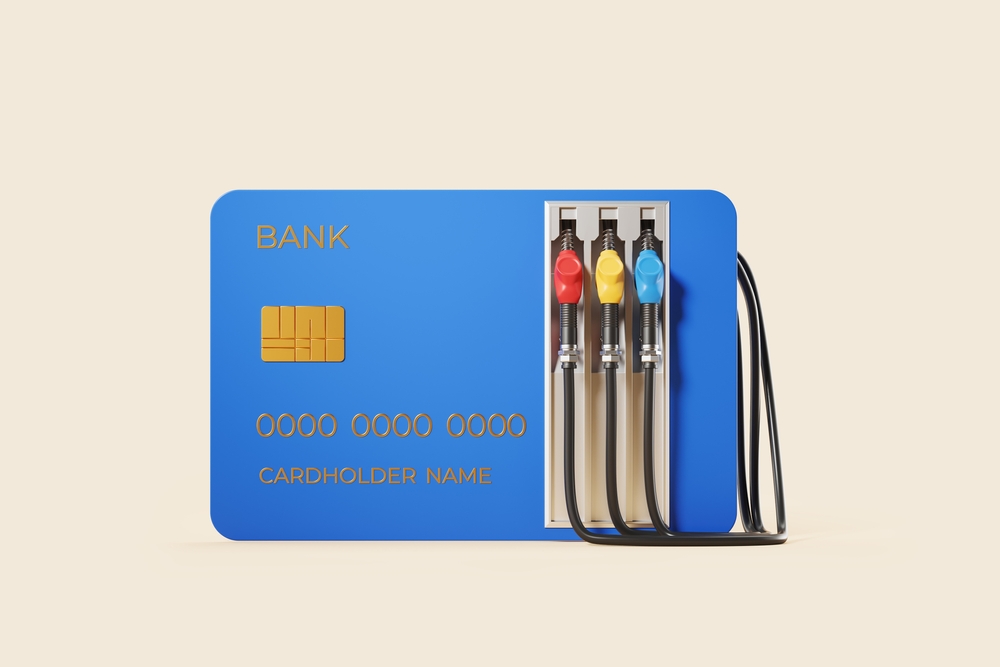With over 2 million truck drivers in the U.S. alone, it’s no surprise that companies are looking for ways to save money when managing their fleets. One question they ask is whether to use a fuel card or a credit card. When it comes to managing the finances of a trucking business, there’s often confusion between fuel card vs credit card. It’s important to understand the differences between these two payment methods to make an informed decision when selecting one for your business.
Whether you’re a fleet manager or a truck driver, here are some key differences to consider when deciding between fuel and credit cards. Fuel cards are specifically designed for use at fueling stations and provide access to discounted fuel prices and other features that can help reduce costs associated with running a trucking operation. Credit cards offer more flexibility but have higher fees and interest rates. In this article, we’ll look at fuel card vs credit card comparison so you can determine which is best suited for your needs.
What is a Fuel Card?
A fuel card is a payment card issued by commercial fueling companies that allows businesses to purchase fuel from participating service stations. It can also be used to pay for other services such as car washes, lubricants, and maintenance. Fuel cards offer a convenient way to manage your company’s fuel expenses and can provide discounts on fuel purchases.
To improve efficiency and cost-effectiveness, businesses can assign fuel cards to individual drivers or fleets of vehicles. This allows you to track the quantity and type of fuel purchased and the cost of each purchase. Fuel cards are also useful for identifying fraud or unauthorized purchases. They provide detailed reports of purchase activity that can be used for auditing or expense management.
Fuel cards offer many benefits for businesses, including discounts on fuel, convenience, and the ability to track and manage expenses. If you are considering using a fuel card, compare the features and fees of different providers to ensure you get the best deal. A fuel card can effectively reduce costs and maximize savings with careful monitoring and management.
What is a Credit Card?
A credit card is a payment card that allows you to make purchases without using cash. It enables you to borrow money from the credit issuer to make purchases, and then you can pay off the balance over time with regular payments (called minimum monthly payments). Credit cards also often offer rewards and cashback when you use them for certain purchases.
A credit card is like a loan for a business, but with much less paperwork and an easier approval process. You can use your credit card to make purchases or withdraw cash from ATMs, and it’s often more convenient than using a check or cash. Plus, credit cards are accepted almost everywhere, so you can use them to make purchases worldwide.
What are the Differences?

When it comes to fuel cards and credit cards, there are some key differences that truck owners should be aware of. They include:
Fuel Discounts
A fuel card comes with various discounts, making it an incredibly attractive option for truck owners. With a fuel card, you can benefit from discounts on fuel purchases, meaning you can make the most of your money. Some cards also offer rebates to get a percentage back on fuel bills. You’ll also get discounts on other essential items like lubricants, spare parts, and tires from participating partners. You won’t get the same discounts or rebates with a credit card.
Fuel Tracking
With a fuel card, you can track and monitor your fuel purchases. You can see where and when each purchase was made, what kind and quantity of fuel was purchased, and other details. This makes it easier to stay on top of your fuel expenses, which can be incredibly helpful for budgeting, tax season, and more. You don’t have that kind of insight into your expenses with a credit card. Instead, you get a bill at the end of the month with no easy way to track your fuel purchases.
Security and Fraud Protection
Fuel cards offer security and fraud protection layers that help business owners keep their funds safe. Unlike credit cards, fuel cards have a range of anti-theft and fraud prevention features, such as PIN authentication and driver identification. Additionally, fuel cards are associated with an account that only has enough funds for fuel and transportation-related expenses, reducing the risk of fraud compared to a credit card that can be used for any purchase. Combining these features helps ensure that fuel card users can enjoy secure transactions.
Do Companies Prefer a Fuel Card or Credit Card?
According to a report by Allied Market Research, the fuel card market has grown exponentially over the past few years, and it’s no surprise that many companies are taking advantage of these benefits. Fuel cards can be incredibly helpful for trucking businesses, providing discounts on fuel, detailed tracking of purchases, and enhanced security to protect against fraud. Fuel cards offer more advantages than credit cards for businesses looking to manage their transportation or fuel costs. Fuel cards give companies greater visibility and control over their drivers’ purchases, with data that can be tracked and reported on.
Fuel cards are also typically more secure than credit cards, as they typically don’t require personal information to be used; this makes them less vulnerable to fraud. As a bonus, fuel cards often come with discounts to help companies save on fuel costs. On the other hand, credit cards may offer traditional reward points, but they often come with higher interest rates and fees.
Conclusion
Choosing between a fuel card and a credit card is an important decision for trucking companies. A fuel card can provide multiple financial benefits when used responsibly and offers significant convenience for refueling and payment processing. It also helps maintain better control over your account while providing you with key data to help send rate confirmation, manage fuel costs, optimize routes, and maintain reasonable budgets. On the other hand, credit cards certainly have their place but tend to come with high fees and interest rates, which can quickly add up for commercial truckers.
At Advanced Commercial Capital, we understand the needs of truckers when it comes to cash flow and want you to succeed with your business. We provide trucking companies with custom-tailored factoring solutions so they can save money, improve their cash flow, and stay profitable. Our team of experts is available to answer any questions regarding fuel cards and credit cards. If you want to learn more about how we can help your business reach its full potential, contact us today.

